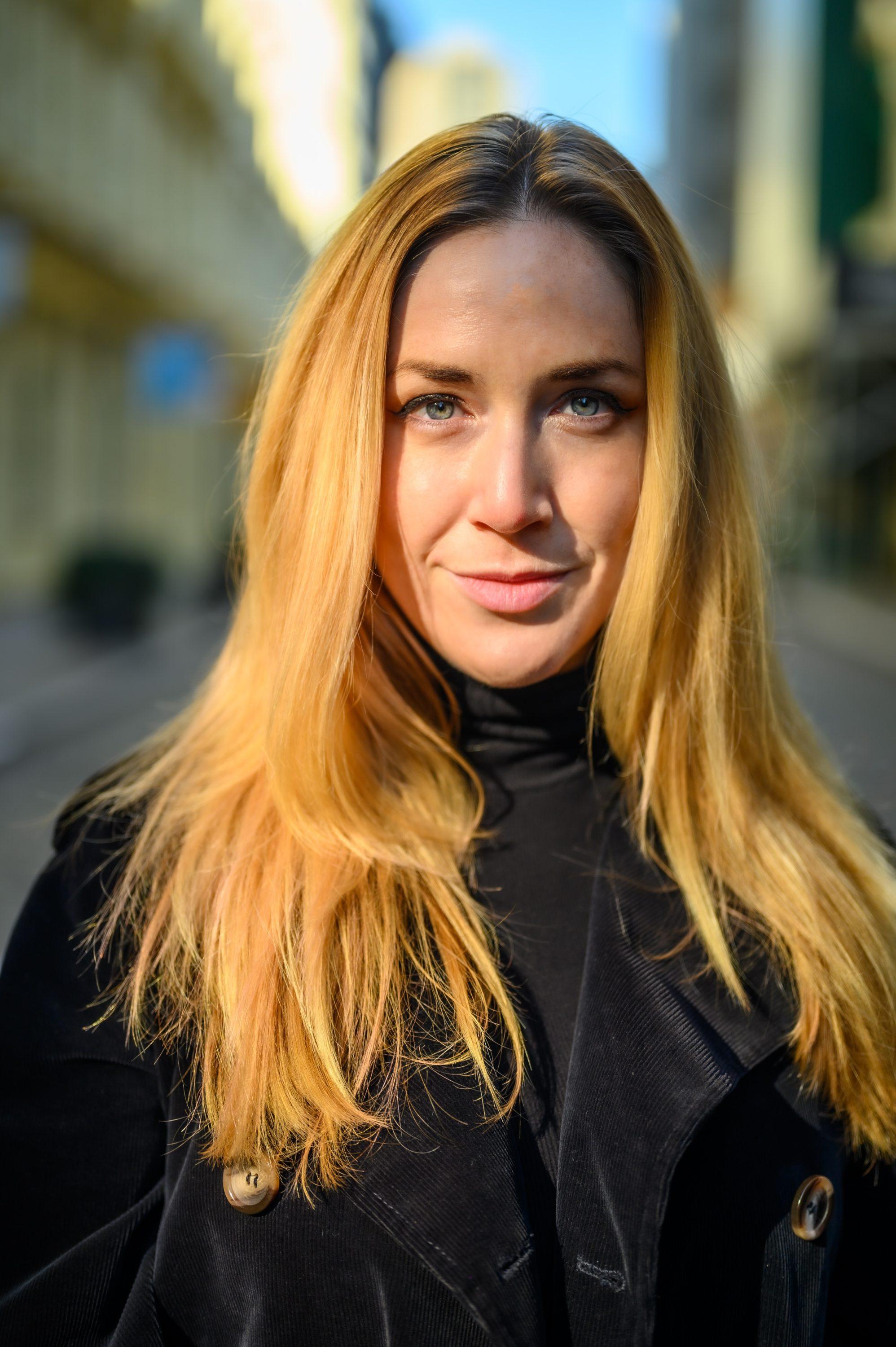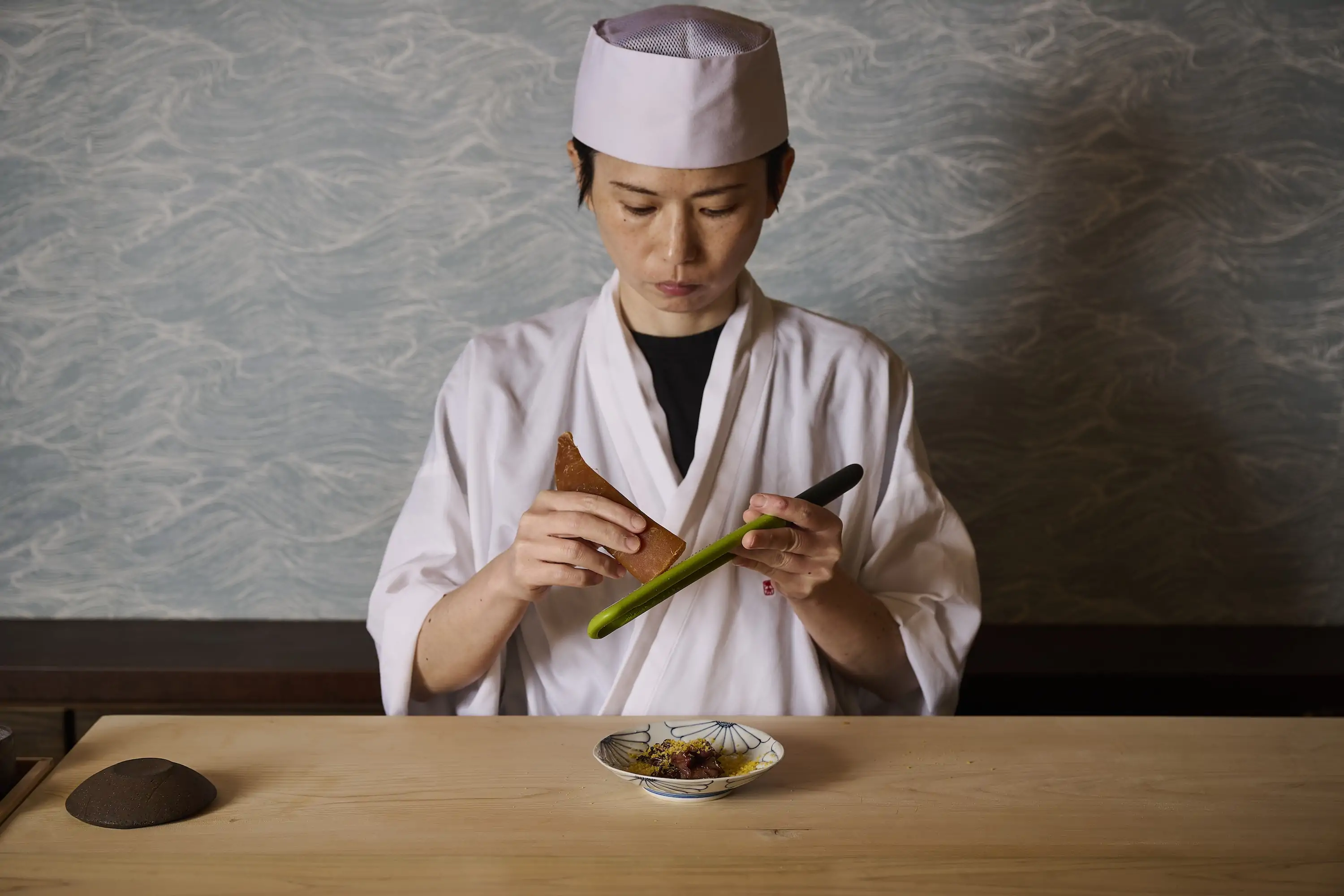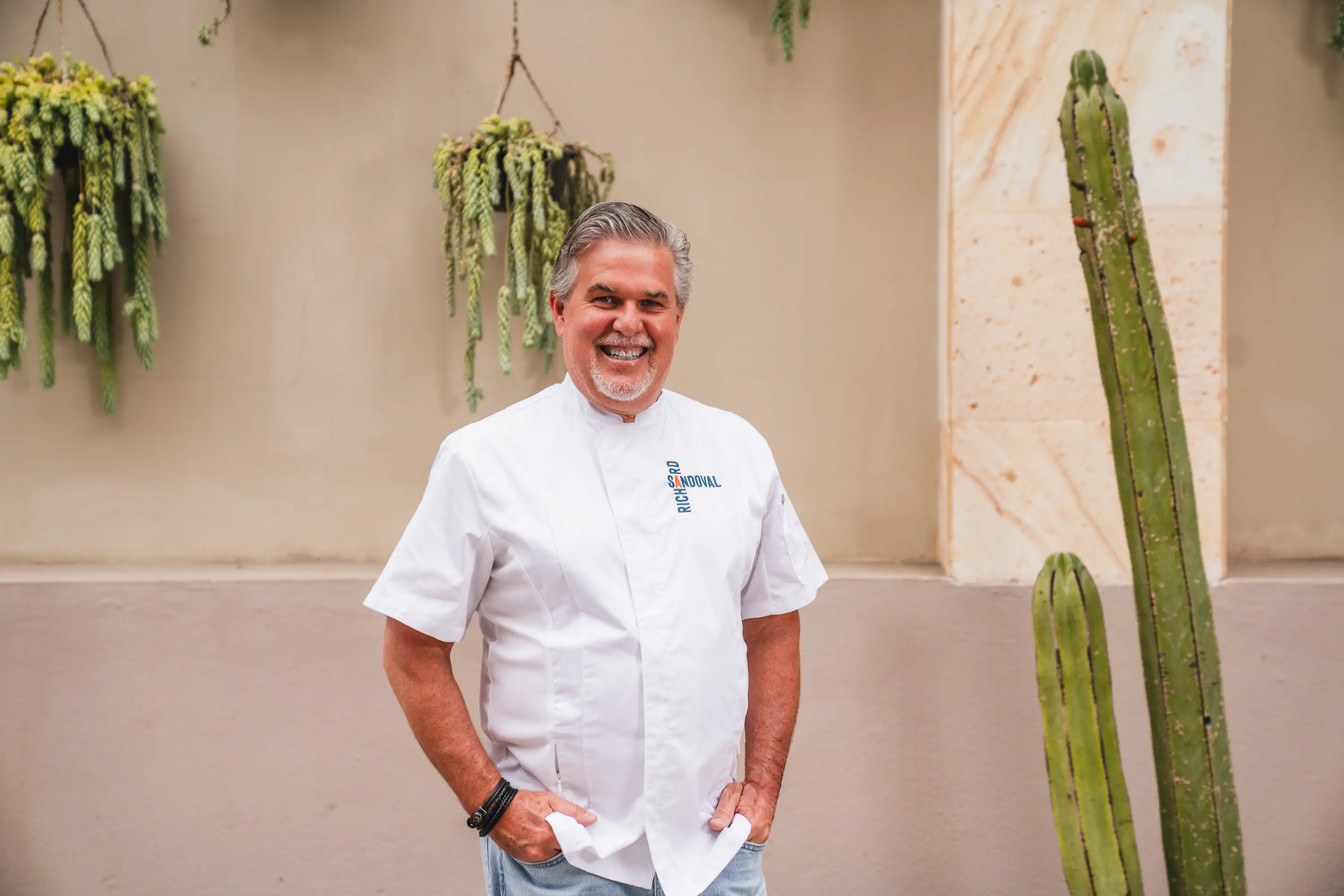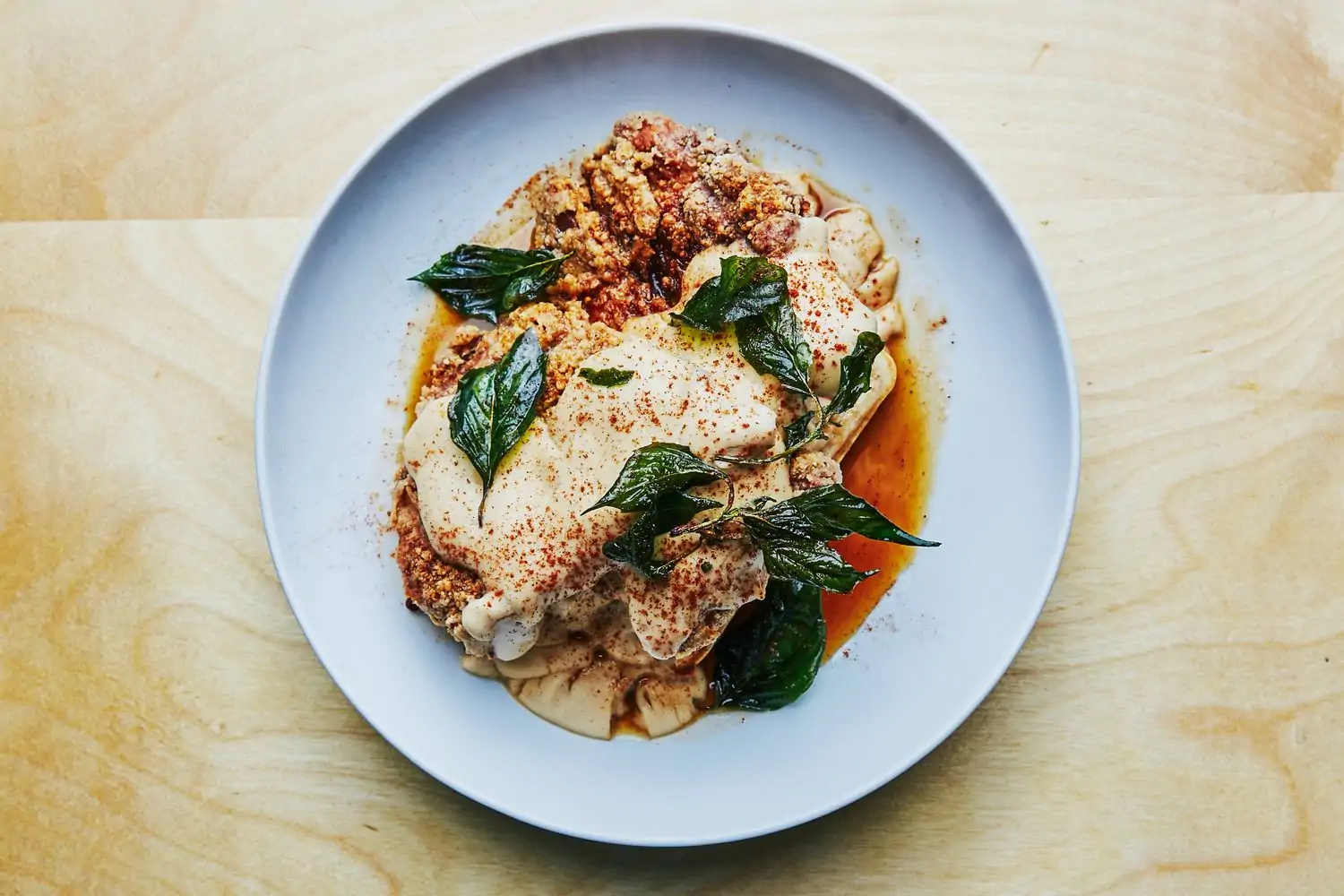When you enter the dining room at Azabu in Tribeca, make a right through a discreet side door, then head down the stairs to a subterranean blonde-wood cocoon. There, you’ll find The Den at Azabu New York, an intimate omakase that specializes in Edomae-style sushi.
There are no Instagram-bait garnishes here, just perfect grains of body-temperature rice topped with glistening sweet shrimp and flame-colored tongues of Hokkaido uni.
Toshihide Terado, a veteran of Tokyo’s legendary Sushi Saito, is at the helm, but he’s not the only star here. You’ll find sous chef Nanako Fujitani at his side slicing through richly marbled cuts of otoro with deft precision.
In Japan’s male-dominated omakase temples, female sushi chefs remain rare. But Fujitani is among the few to have worked her way up the ranks and even established herself in New York, where female sushi chefs are also a minority. All of it is even more impressive since her career path started off in a very different direction.
Read on to see how Fujitani became a standout in the omakase world, and make a booking at The Den at Azabu New York on OpenTable.
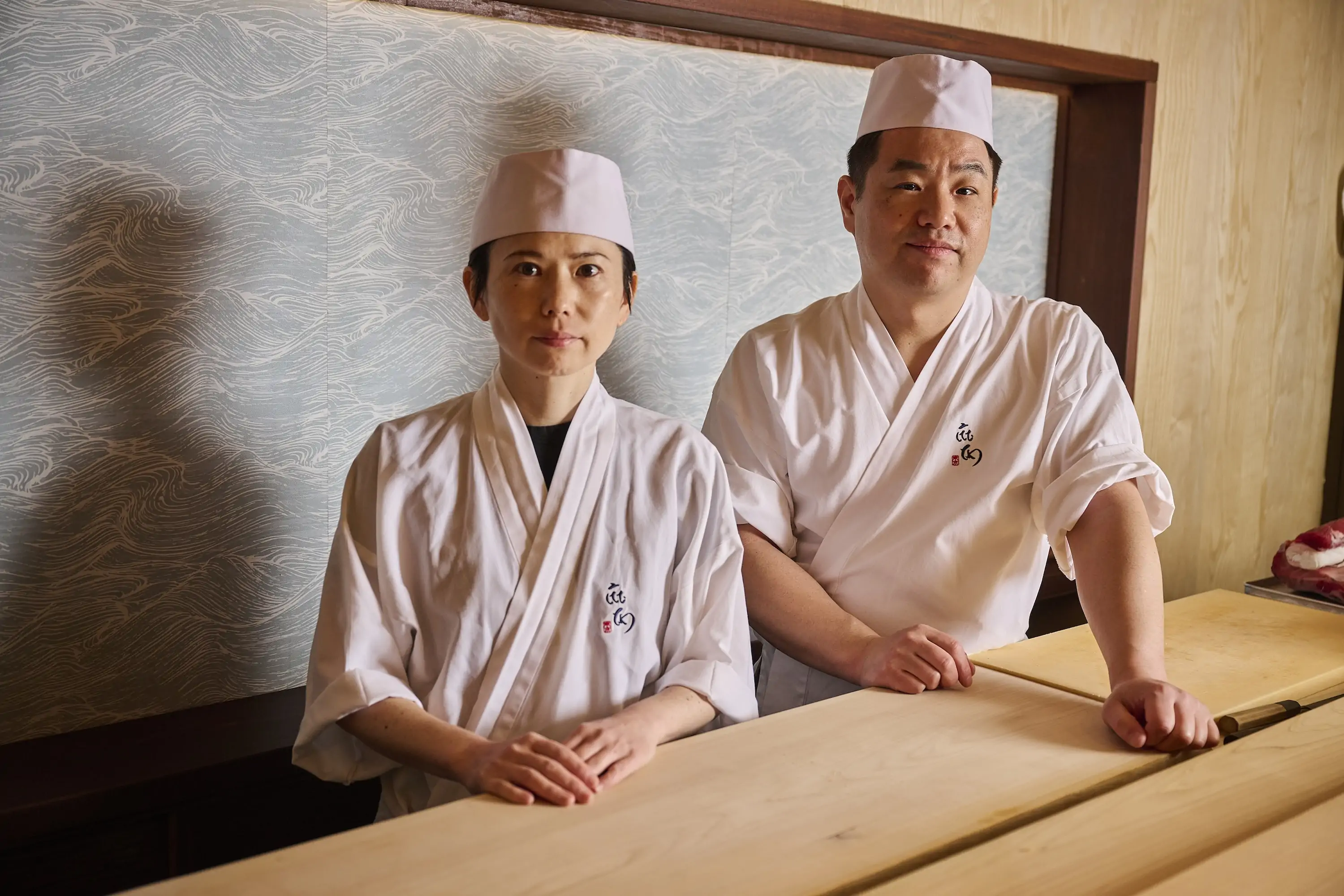
An unexpected pivot
Fujitani started off her career as a systems engineer, but food was already in the back of her mind. As a student in Canada, she was struck by the fact that Japanese restaurants around her bore little resemblance to the ones she knew back in her hometown of Osaka. “I remember thinking that I wanted to bring the actual, real Japanese food outside [of the country],” Fujitani says.
She returned to Japan in 2009 to give cooking a serious shot, starting at an Italian restaurant before moving on to an izakaya, and then a ryōtei or a fine-dining restaurant. “When I started as a chef, the hierarchy in restaurants was still very strict,” she says. “I was an amateur and hadn’t attended culinary school, so I was scolded by my seniors every day no matter what I did.”
But Fujitani pushed through and eventually landed a gig at Plan Do See, the company behind several high-end restaurants in Japan, including the original Sushi Azabu in Tokyo.
Helping pave the way
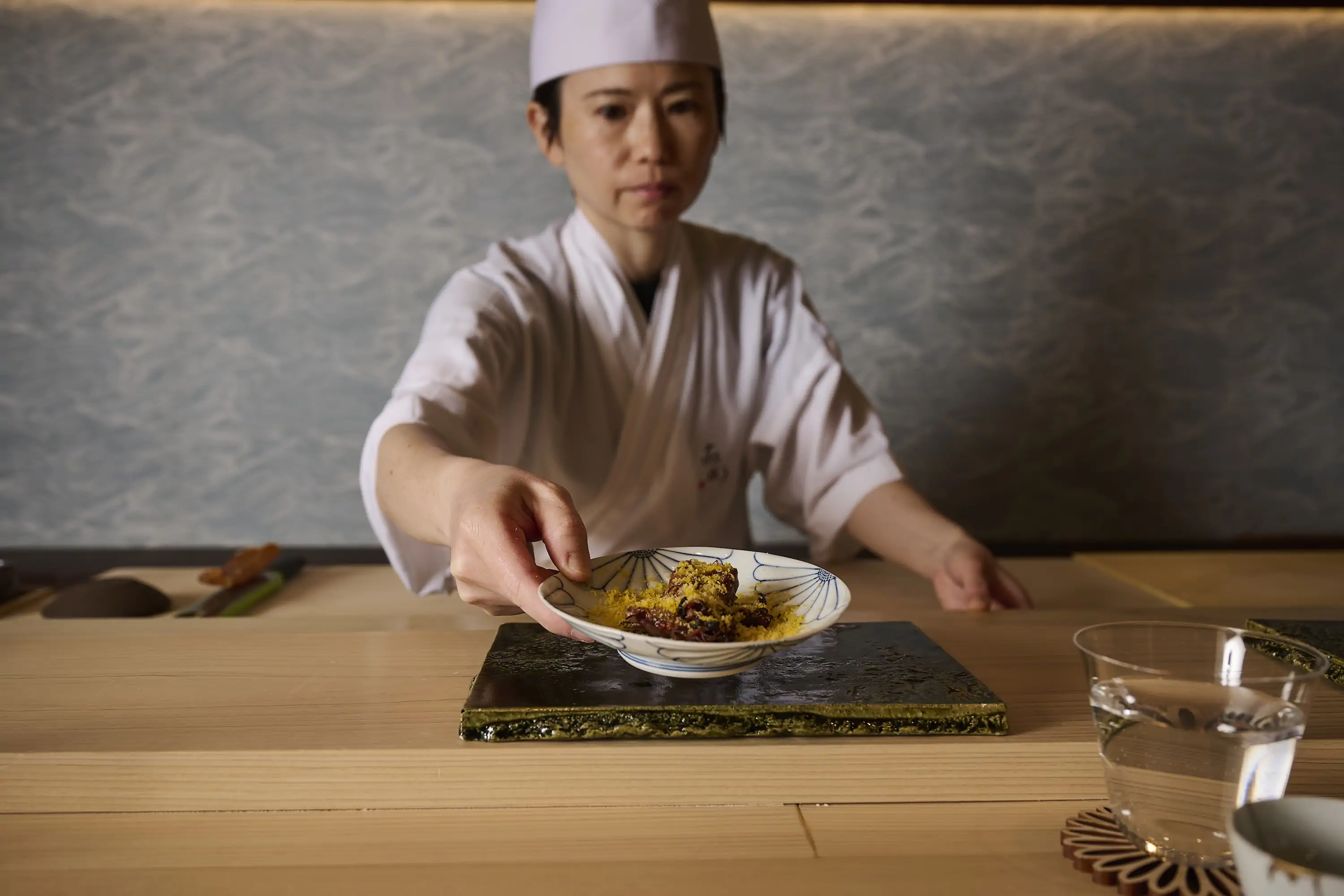
Historically, a number of widespread misogynist beliefs barred women from rising up the ranks in Japan’s most revered omakase restaurants. Some said that a woman’s core body temperature was too warm to properly handle fish; others even claimed that because women wore perfume, they would detract from diners’ sensory experience. Still others said that a woman’s menstrual cycle could throw off her palate.
“People don’t believe that anymore, of course,” Fujitani says. “We know that’s not true, so hopefully that will continue to open doors.” She’s never experienced overt discrimination herself, but her first few years in kitchens were particularly challenging. “The work was physically demanding with long hours, and compared to men, I was shorter and less strong, so I faced many challenging days both mentally and physically,” she says.
Over the course of her career, and particularly since she’s been working at Plan Do See, customers have been surprised to see her behind the counter. On more than one occasion, diners have commented on how unusual it is to see a woman in her role.
“There are so many male celebrity [sushi chefs], but there’s maybe only two or three really famous female sushi chefs in Japan,” she says. “And when you come to New York, there’s even fewer.” When the opportunity came up for a gig in the city, Fujitani was excited to grow that representation.
Getting creative in New York
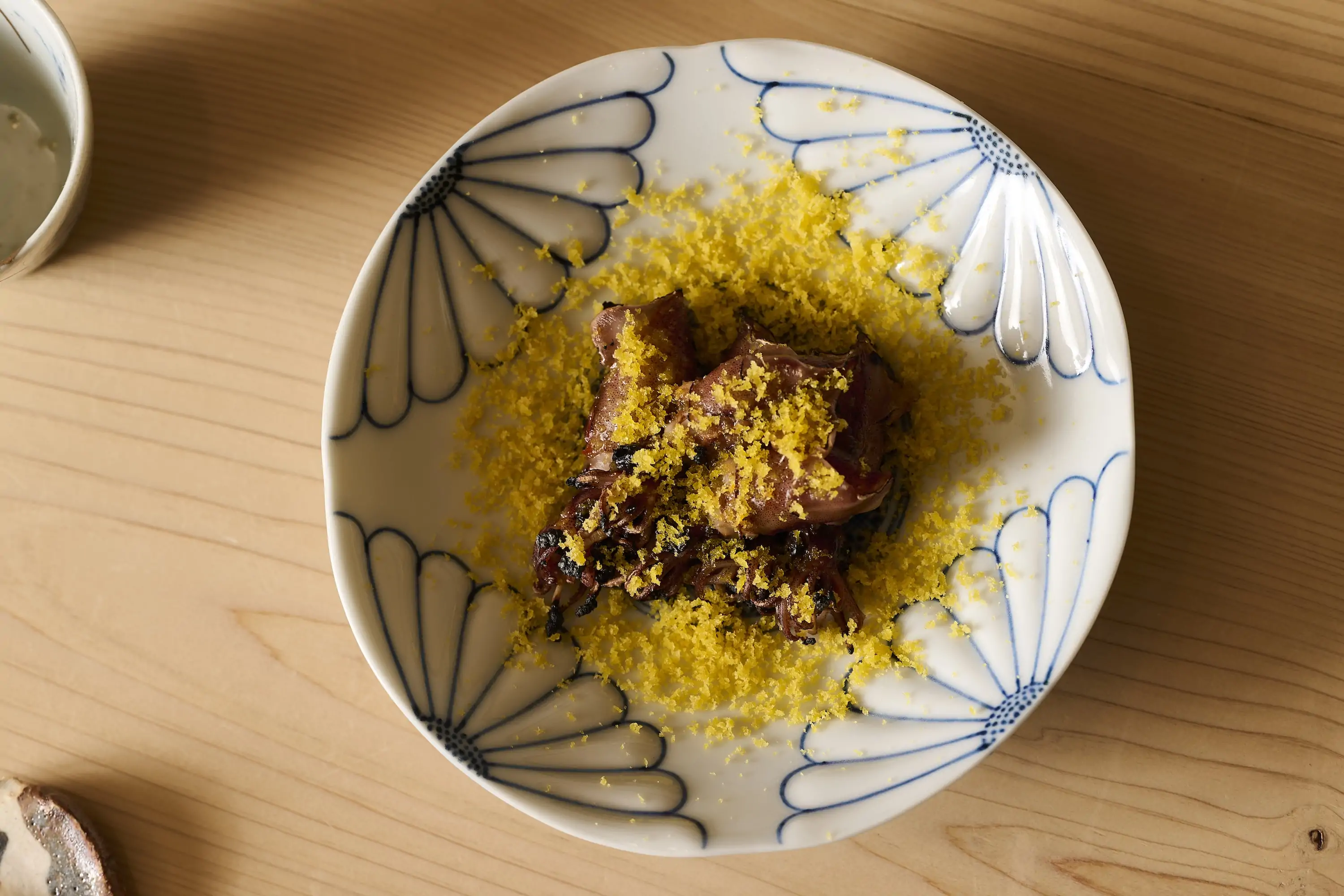
Fujitani moved to New York for her current role in 2022 and quickly immersed herself in the city’s dining scene for inspiration. She especially likes to see how other Japanese restaurants use local produce.
“I find it very inspiring to see restaurants incorporating local American ingredients, but using them in a traditionally Japanese way,” she says. “Especially since I’m newer to the city, I’m still learning about all the ingredients you have access to here, which is very exciting.”
Over at The Den, she’s thinking more about creating immaculate nigiri than breaking the glass ceiling, but she hopes that her journey will normalize women excelling in this area. In addition to slicing, seasoning, and serving fish, you’ll see her having the most fun getting creative with appetizers like a recent chilled scallop dish with summer vegetables and fried sea bass with plum paste and shiso. “I hope that someone who walks into the restaurant feels transported to Japan,” she says.
Although there’s still a long way to go before female sushi chefs receive the same level of recognition as their male counterparts, Fujitani is hopeful the industry is moving in the right direction. “In Japan, the numbers are increasing, and I believe they will continue to increase.” She’s proud to be part of the progress.
Diana Hubbell is a James Beard Award-winning food and culture journalist based in Brooklyn. Currently an associate editor at Atlas Obscura, she has also written for Eater, The Washington Post, The Guardian, VICE, Condé Nast Traveler, Travel + Leisure, WIRED, and Playboy, among others.
